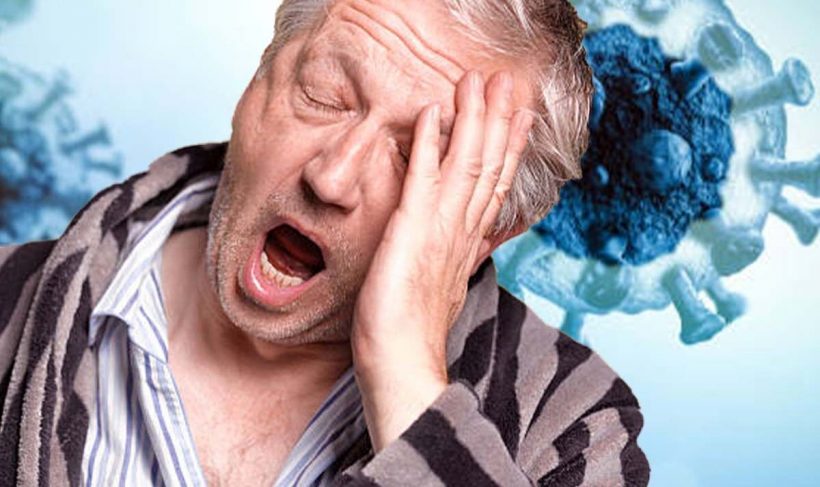Dr Michael Mosley on the importance of routine for sleep
We use your sign-up to provide content in ways you’ve consented to and to improve our understanding of you. This may include adverts from us and 3rd parties based on our understanding. You can unsubscribe at any time. More info
Indeed, the NHS says there are lots of symptoms you can have after a COVID-19 infection. The health body says: “During any illness it’s common to sleep more as your body fights the infection. While you’re recovering, it’s also common to have disturbed sleep patterns. You may struggle to get back into a good routine.”
The health body suggests that if you cannot get to sleep within half an hour of going to bed, “get up and relax in another room until you feel tired again”.
It adds: “If you’re feeling very tired during the day and are struggling to stay awake, a 30-minute ‘power nap’ can help. It shouldn’t affect your sleep at night as long as it’s not too late in the day.”
Nonetheless, it says there are some instances when people should speak to their GP practice.
It says these instances include when your sleep problems are not improving, you’re worried about your symptoms, or you’re worried about possible long Covid symptoms in a child or young person under 18.
READ MORE: ‘Moderate’ alcohol intake could cause peripheral neuropathy warns expert – key risks

The NHS says there are lots of symptoms you can have after a COVID-19 infection, and one common long Covid symptom is extreme tiredness, also known as fatigue.
It notes that many people will be familiar with the feeling of fatigue after exercise or a long period of concentration.
But it warns: “Sometimes, however, fatigue can be felt in a way that does not seem normal.
“Despite resting, and a good night’s sleep, fatigue occurs after minimal effort, is prolonged and limits your usual activity. It can leave people feeling dull and finding it difficult to concentrate and recall memories.”
The NHS says fatigue is very common after viral infections, such as Covid and normally it settles after two or three weeks.
The health body does warn, however, “in some people it can linger for weeks or months”.
The NHS says you should talk to your GP so they can rule out any other condition that could be causing your tiredness if:
- Your fatigue is getting worse rather than better
- After four weeks your fatigue is unchanged
- You are worried or have other new symptoms.
The NHS says there are lots of other symptoms you can have after a COVID-19 infection, which include the following:
- Shortness of breath
- Chest pain or tightness
- Problems with memory and concentration (“brain fog”)
- Heart palpitations
- Dizziness
- Pins and needles
- Joint pain
- Depression and anxiety
- Tinnitus, earaches
- Feeling sick, diarrhoea, stomach aches, loss of appetite
- A high temperature, cough, headaches, sore throat, changes to sense of smell or taste
- Rashes

The Mayo Clinic says although COVID-19 is seen as a disease that primarily affects the lungs, it can also damage many other organs, including the heart, kidneys and the brain.
It states: “Organ damage may lead to health complications that linger after COVID-19 illness.
“In some people, lasting health effects may include long-term breathing problems, heart complications, chronic kidney impairment, stroke and Guillain-Barre syndrome — a condition that causes temporary paralysis.
“Some adults and children experience multi-system inflammatory after they have had COVID-19. In this condition, some organs and tissues become severely inflamed.”
Source: Read Full Article






